Original | Odaily Planet Daily
Author | Hao Fangzhou
Editor | Mandy
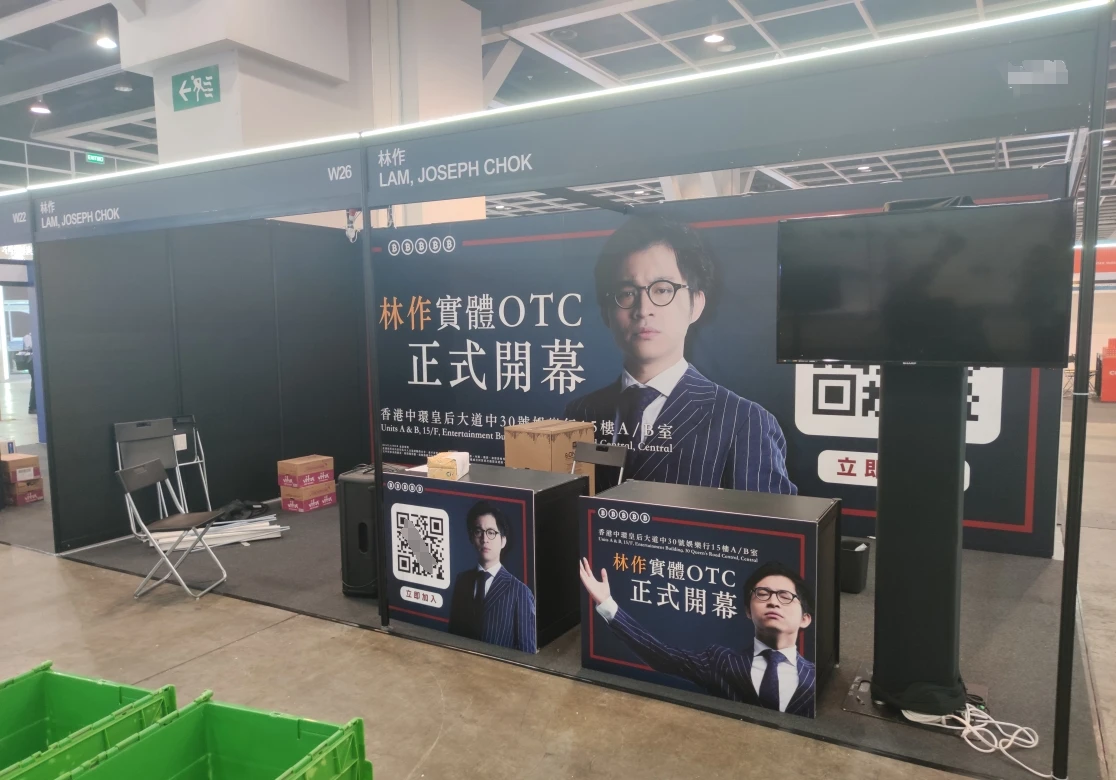
Today, Hong Kong police arrested JPEX promoter and internet celebrity Lin Zuo, which may be related to the JPEX cryptocurrency exchange incident. The police searched Lin Zuo's office located in the entertainment district of Central. The case is currently being followed up by the Commercial Crime Investigation Bureau.
Who is Lin Zuo? How many unlicensed exchanges, represented by JPEX, are there in Hong Kong? Why is the mainstream market strategy not well received in Hong Kong? How many ordinary investors in Hong Kong will truly register and use the exchange? Why is the compliance process accelerating while the market atmosphere is somewhat similar to the chaotic "coin circle" atmosphere of five years ago? Where will Hong Kong Web3 ultimately go?
Next, let Odaily Planet Daily unfold the JPEX case one by one.
"Sir, we don't need your help in Kowloon City"
Two flowers bloom, each showing its own beauty.
On September 13, the Hong Kong Securities and Futures Commission issued a notice, noting a virtual asset trading platform named "JPEX", actively promoting its services and products to the Hong Kong public through social media influencers and over-the-counter virtual asset currency exchange shops. The Securities and Futures Commission clarified that none of the entities under the JPEX Group have been licensed by the Securities and Futures Commission to operate a virtual asset trading platform in Hong Kong.
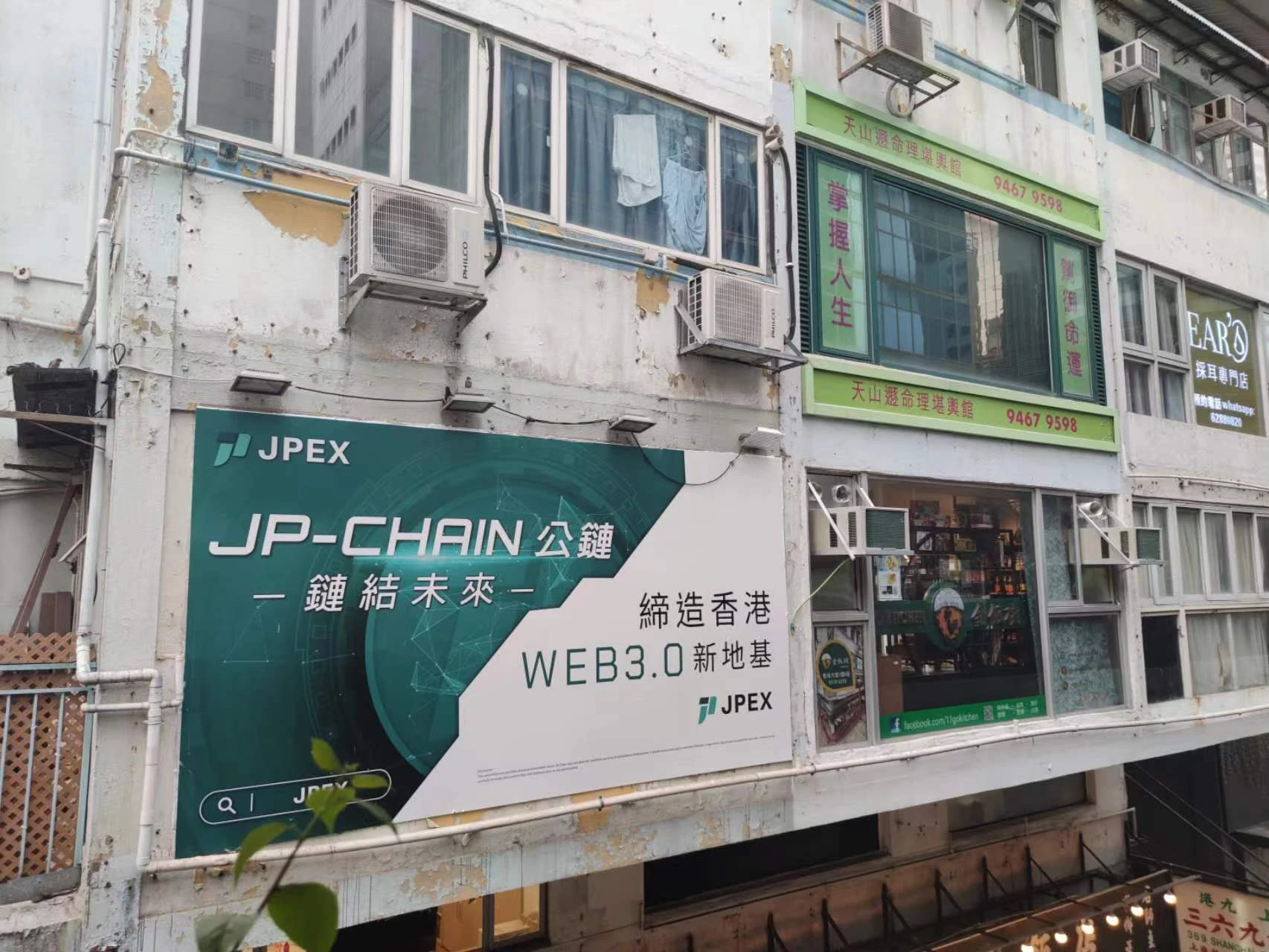
Street advertisements for JPEX and its public chain near the footbridge between the convention center and Wan Chai
According to Ming Pao, some users pointed out that JPEX has restricted the withdrawal limit to a maximum of 1000 USDT and increased the withdrawal fee to 999 USDT, meaning that retail investors can only withdraw a maximum of 1 USDT.
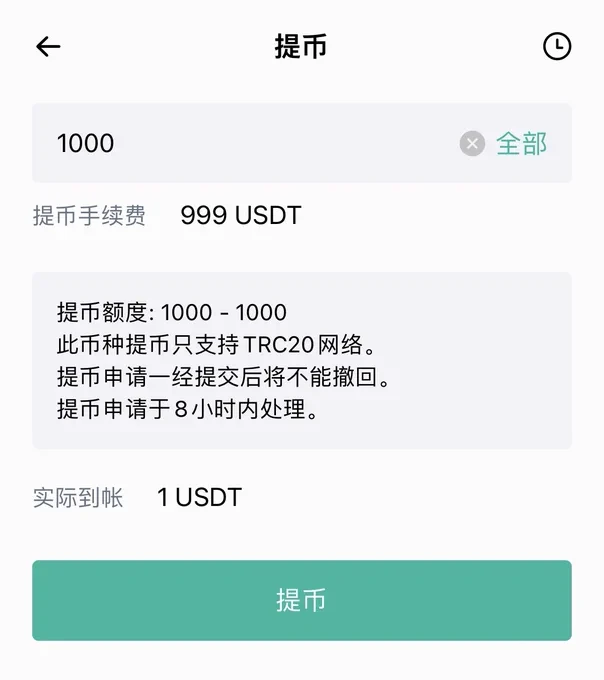
Image circulated within the community
On the 14th, JPEX issued a response and special announcement regarding the statement from the Securities and Futures Commission of the Hong Kong Special Administrative Region, stating that they have adjusted the USDT withdrawal fee and established a special task force to make adjustments for future development, and are awaiting further guidance from the Securities and Futures Commission.
Although the announcement stated that if users have an urgent need to withdraw funds, they can arrange for immediate withdrawal by filling out a form, community users reported that after filling out the form, they were asked to submit identification and income documents. Community members advised not to submit information to JPEX, as it may be used for illegal purposes.
On the 15th, Bitrace stated that JPEX's address has been severely contaminated with funds, with over 190 million risky USDT flowing into a hot wallet, and the related address is marked as "black-gray production" type.
On the same day, Nicholas Tse's agent responded that they had just noticed that JPEX had been using Nicholas Tse's image and felt helpless. Previously, Nicholas Tse had received an invitation to shoot an advertisement, and at that time, JPEX claimed to be registered overseas and provided proof, so they arranged for the shoot in March last year. However, in May last year, they learned that JPEX "was under the supervision of the Securities and Futures Commission" and had notified JPEX in writing that they should not use Nicholas's image for any advertising before obtaining a license in Hong Kong. They stated that they reserve the right to pursue JPEX.
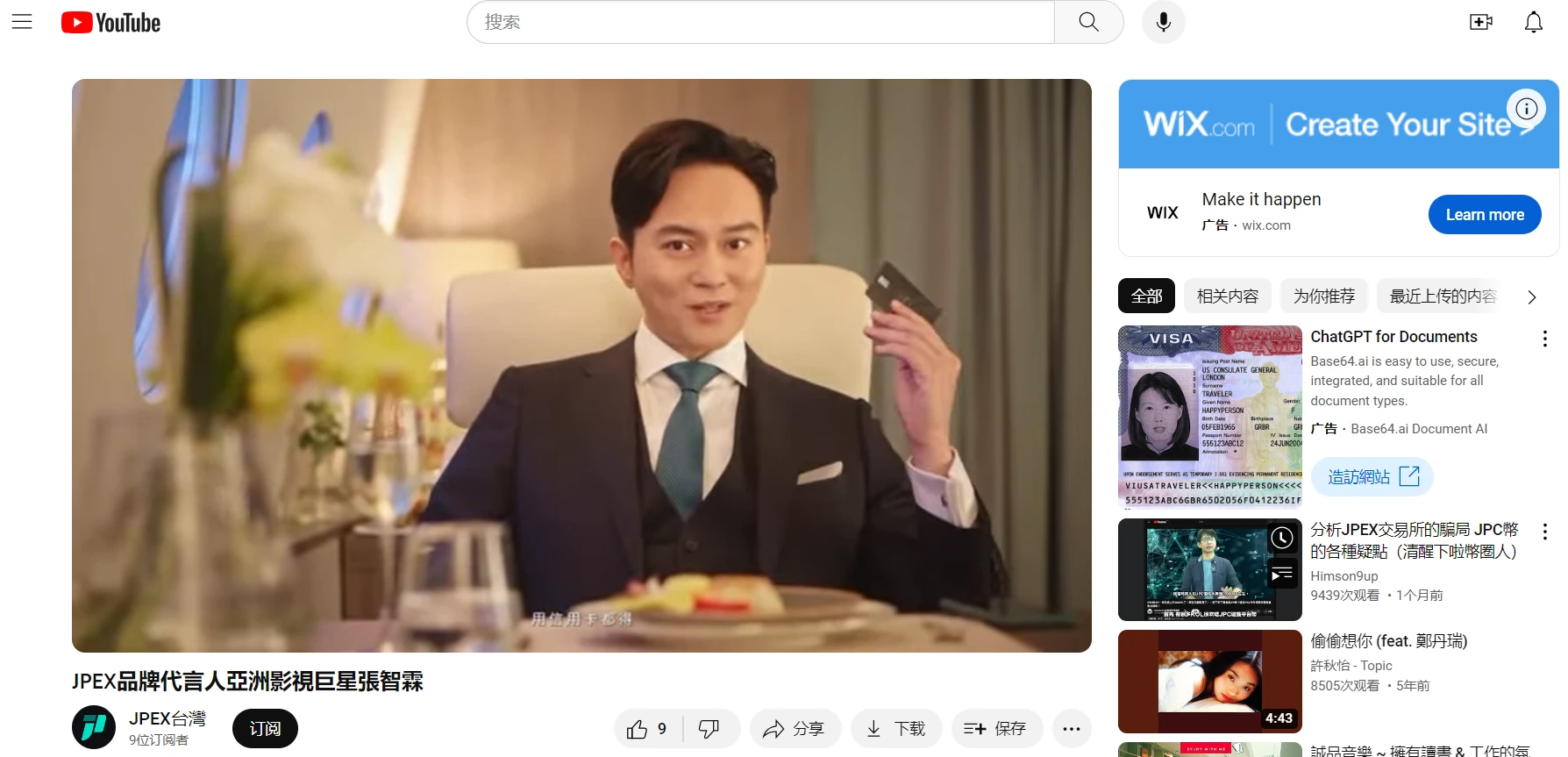
JPEX's YouTube channel
According to Ming Pao, since the warning statement issued by the Securities and Futures Commission the day before, a number of internet celebrities and over-the-counter exchange shops have "cut ties" with JPEX, including "JPEX partner" Lin Zuo, who announced on a social media page that he would stop promoting any unlicensed exchanges in Hong Kong starting from yesterday, and his over-the-counter business has also temporarily ceased. He described himself as suffering heavy losses and "not doing well"; several internet celebrities who previously promoted JPEX, including "Coin Prince" Huang Zhejie, who was arrested for throwing money in Sham Shui Po in 2018, have removed JPEX-related videos from social media platforms and stated on Instagram that they will not publicly promote or mention any exchanges in Hong Kong that do not have a licensed application, in compliance with regulations and the requirements of the Securities and Futures Commission.
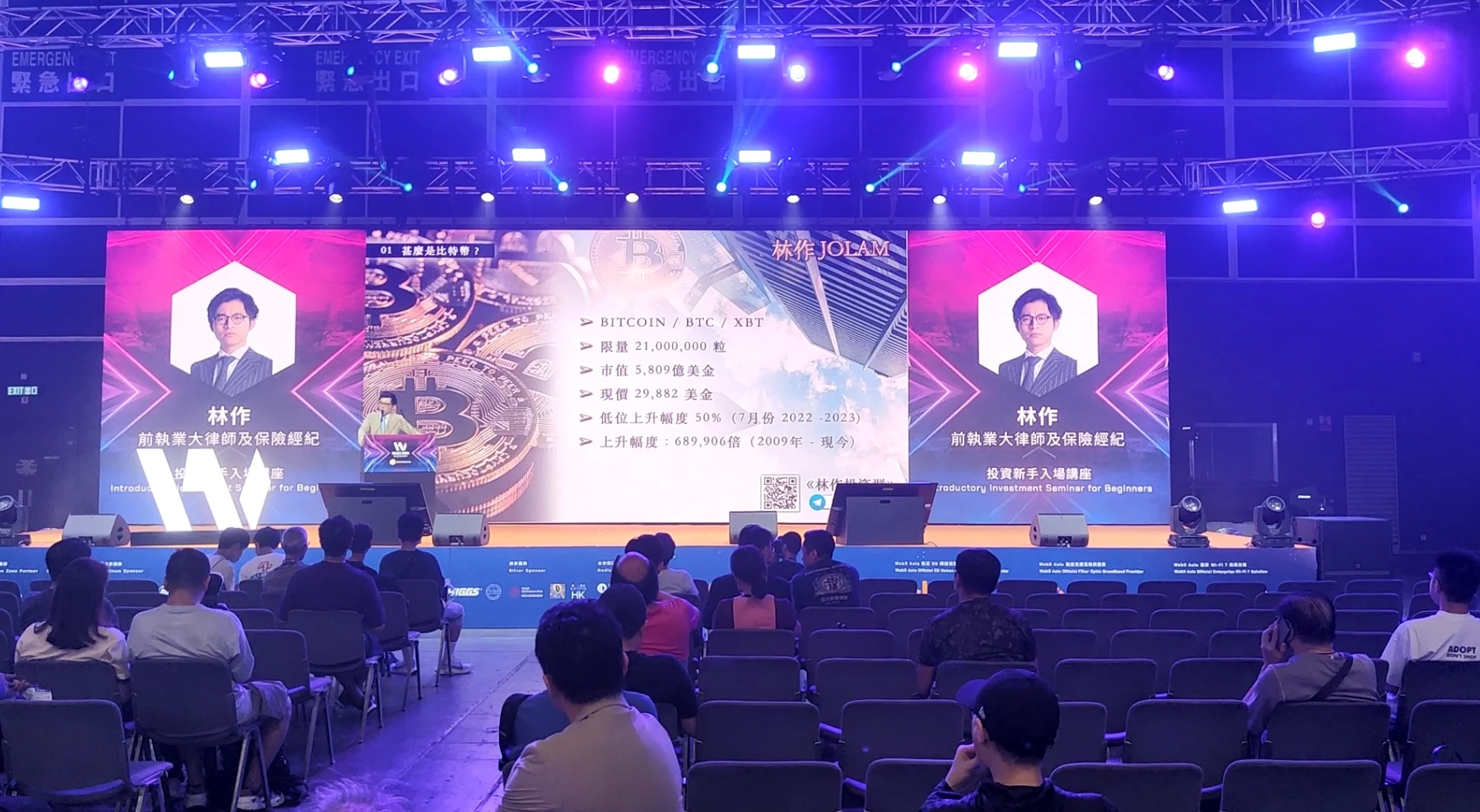
In August, Lin Zuo was giving a speech on cryptocurrency investment at a large exhibition
On the 16th, Xiao Zeyi, Commissioner of Police of the Hong Kong Special Administrative Region, responded to the JPEX fraud and Cyberport data leakage case, stating that the police received a referral from the Securities and Futures Commission the day before, and because it may involve elements of fraud, it is currently being followed up by the Commercial Crime Investigation Bureau. As of 3 p.m. yesterday, 83 people had reported the case, involving approximately HK$34 million. As for the Cyberport data leakage case, Xiao Zeyi stated that they received a report from Cyberport in August and have been actively communicating with Cyberport over the past month. The related cases are still under investigation.
Regarding the issue with JPEX this time, Hong Kong Wen Wei Po commented that JPEX's extensive promotion has attracted a large number of investors, but the Securities and Futures Commission did not intervene early, leading to a geometric increase in the number of victims.
In fact, it's not just JPEX that has been extensively promoted.
On the bus from Shenzhen Bay to Hong Kong, the distant view outside the window is filled with cargo ships the size of "Liyue Port," loaded with containers, coming and going. Closer to the eye are billboards for "Southern Dongying Bitcoin/Ethereum Futures ETF," flashing by from time to time, signaling the transition from the real to the virtual, hinting at the theme of the "international financial center."
In Tsim Sha Tsui, several cryptocurrency education institutions are located in the "Golden Corner," with scrolling screens displaying the logos of Bitcoin, Ethereum, and several "investment mentors" of the week.
At the "Hong Kong Computer and Communication Festival 2023" at the convention center, a large number of local Web3 teams are promoting with Eurasian models, engaging passersby in interactive games, and giving away gifts (from plush toys to USDT).

Photographers of all ages, crowding around the "beauty economy"
The exaggerated, yin-yang, punning, and rhyming stereotypes of Hong Kong media style have also been conveyed in the promotional materials of Web3 companies, with high-frequency words such as "guaranteed, highest, must-have, and stable profit…" (leaving mainland media practitioners who strictly adhere to advertising laws amazed).
For decades, Hong Kong has been deeply familiar with the advantages of beauty-oriented and live video streaming in the 2C media path, collaborating with internet celebrities, or cultivating more "next-door" personal IPs. (Not only companies in the Web3 field such as OTC shops and cryptocurrency education studios, but also clinics and tutoring centers on the streets of Hong Kong often directly use doctors and teachers as prefixes.)

As a cultural symbol of Hong Kong, this year's Miss Hong Kong contestants must also discuss their views on AI
Returning to the promotional strategies of the "unlicensed representative" JPEX, Odaily Planet Daily found that cooperating with local OTC shops to attract new users, setting up advertisements in crowded areas, and inviting celebrity internet influencers to enhance credibility are among the few "correct choices."
And the problems exposed after the "incident" are certainly not limited to "improper promotion."
Chen Zhenying, a member of the Legislative Council of Hong Kong's financial sector, stated that the Securities and Futures Commission has always been monitoring unlicensed operations, but the Securities and Futures Commission must obtain evidence to prove that the platform is operating before it can intervene. Since the platform is unlicensed, it is not within the scope of the Securities and Futures Commission's supervision. Once it collapses, customers will not be able to receive compensation, so the JPEX case can only be investigated by the police for fraud.
Drawing from this experience, if the Securities and Futures Commission finds unlicensed trading platforms advertising in the future, they will remind investors online, and investors should check the list of licensed trading platforms provided by the Securities and Futures Commission before making investments.
(In the realm of Hong Kong's encrypted finance, it is natural for "Sir" to manage the territories outside the city, with small matters being autonomous within the city and major matters requiring prior approval before interference, while the delicate balance between the two sets of rules is hidden in the dust and smoke.)
On the 17th, JPEX announced that due to a third-party market maker restricting the platform's liquidity and in compliance with policy guidelines, the platform will remove all transactions from the wealth management page. Users will be unable to place any new wealth management orders, and existing ongoing wealth management orders will be maintained until the end date of the product to receive profits. JPEX will promptly recover liquidity from the third-party market maker and gradually adjust the withdrawal fees to normal levels.
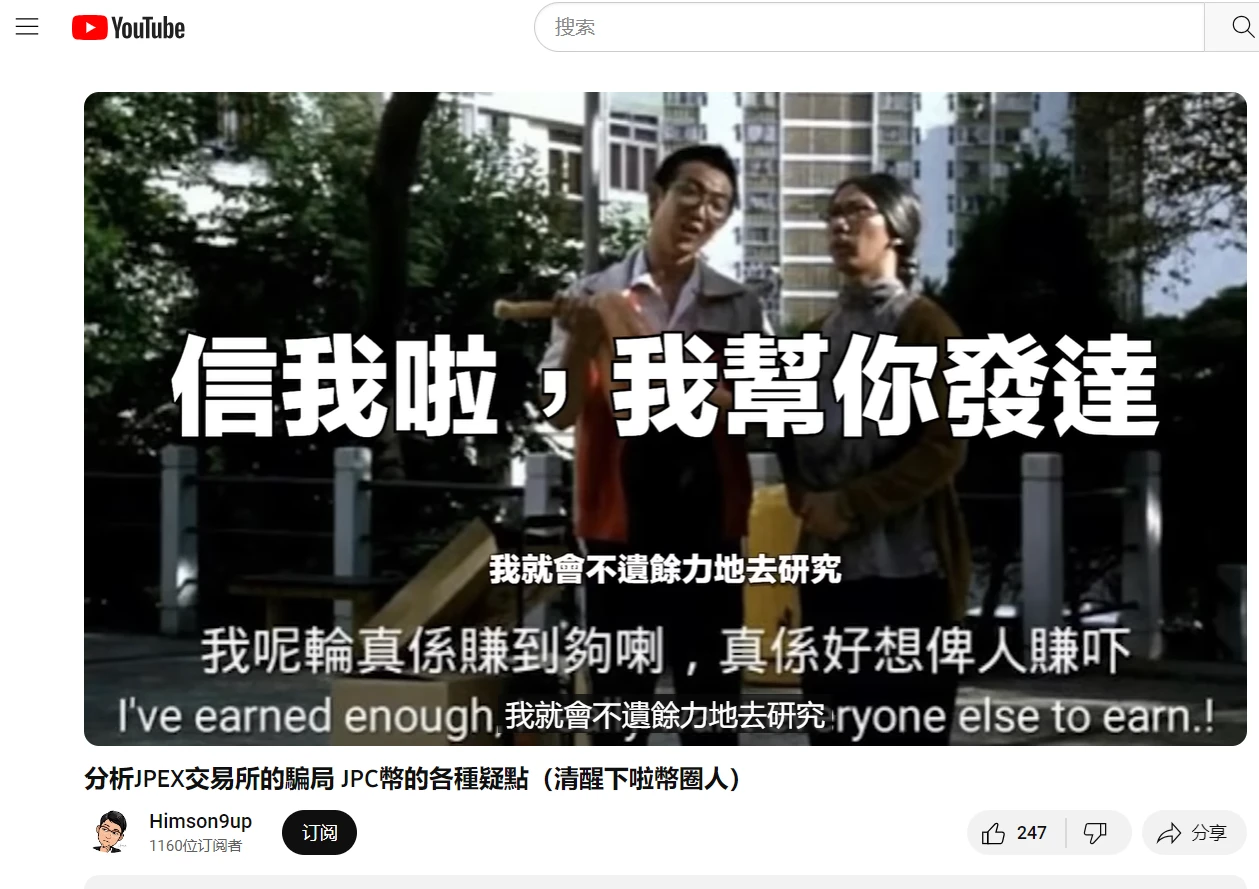
A lengthy analysis of the risks of JPEX by a cryptocurrency blogger on YouTube, mentioning marketing, platform tokens, and wealth management sections (YouTube is also a key area for Web3 information in traditional Chinese-speaking regions).
The latest news on September 18th, Hong Kong police stated that the number of JPEX reports has exceeded a thousand, and another internet celebrity, Chen Yi, has been arrested (suspected of conspiracy to commit fraud). The police went to search and arrest Chen Yi's "CYOTC" Chen Dayi Cryptocurrency Exchange at Wing On Plaza in Tsim Sha Tsui.
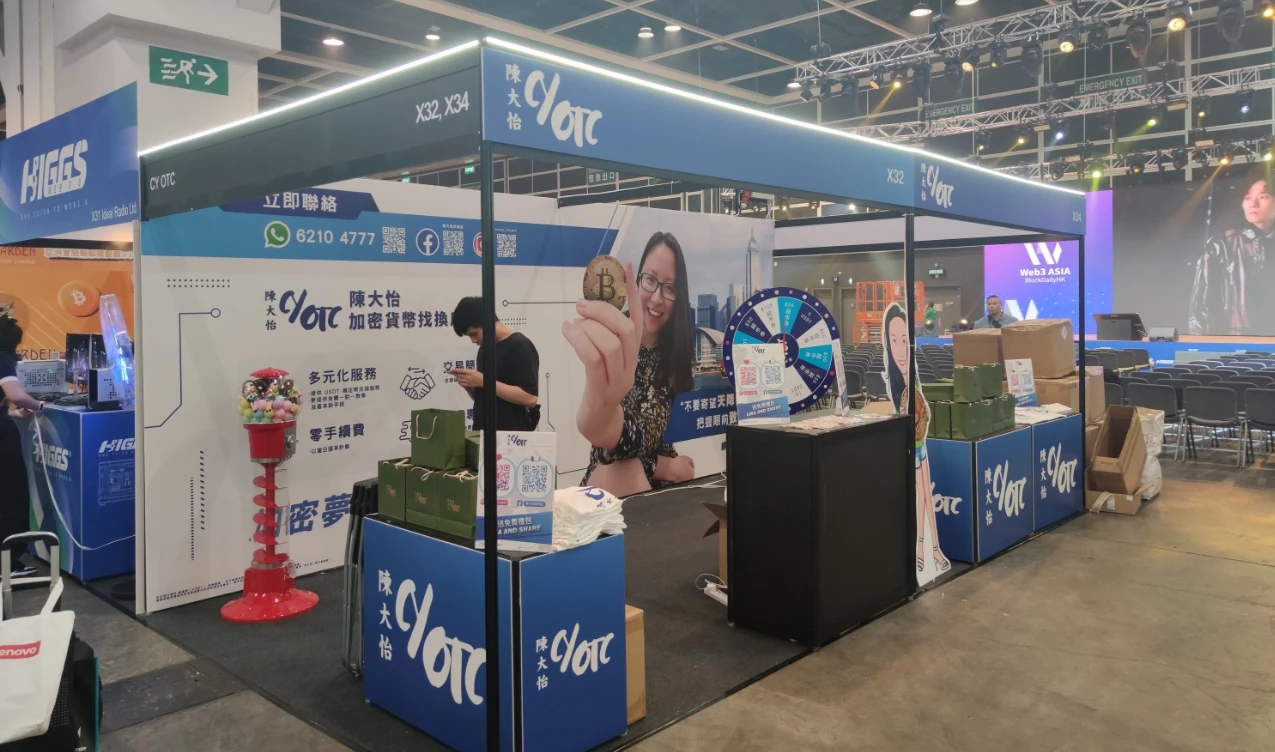
The second "Lin Zuo" has been captured, and the first case of illegal cryptocurrency trading in Hong Kong is still fermenting.
Behind the Victoria Harbour, the "Gatsby" Gathering
Less than 900 meters from Lin Zuo's office is the Hong Kong Maritime Museum located at Pier 8 in Central.
Since the beginning of the "Hong Kong Web3 Carnival" in early April, this place has been frequently "requisitioned" by various Web3 activities, and some "high-end private gatherings" have set sail from here, navigating through the night of Victoria Harbour.
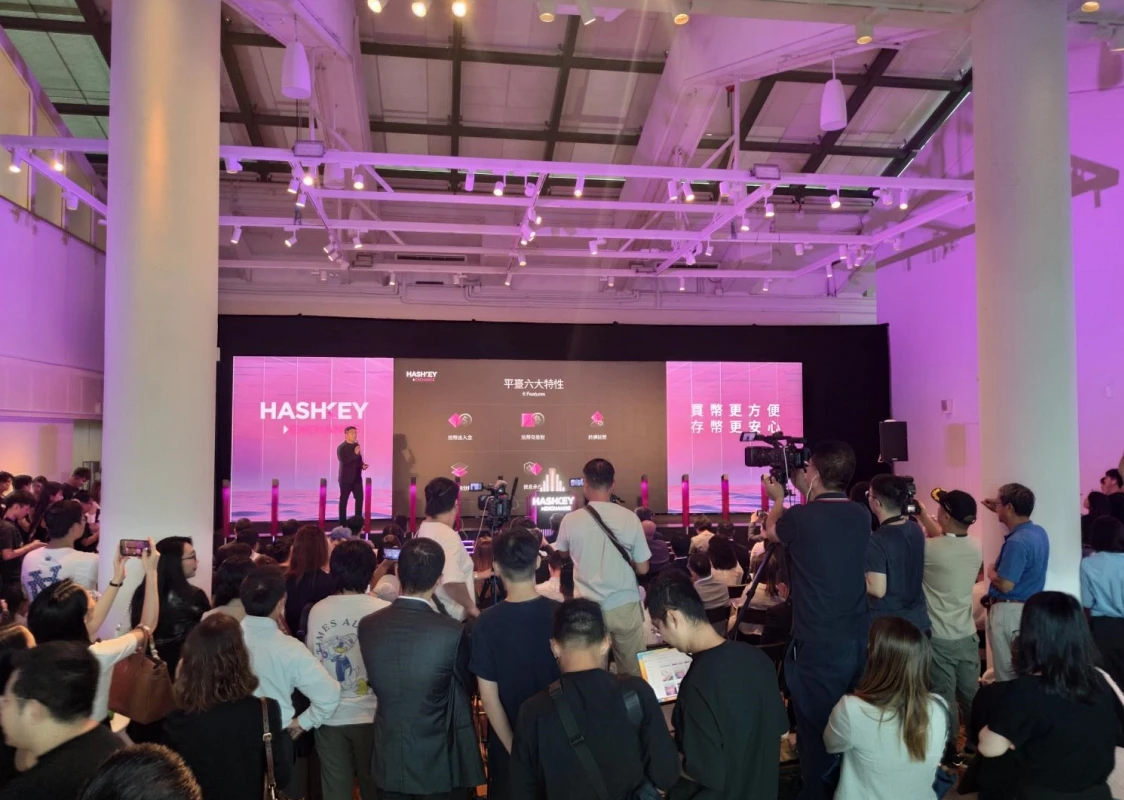
HashKey Exchange's "Launch Ceremony" was held here, with participants in the front row standing tall.
On August 28th, the Hong Kong Web3 compliance representative HashKey Exchange officially opened BTC/USD and ETH/USD trading pairs to retail investors.
Odaily Planet Daily reported that at the event, Vincent Wong, Chief Operating Officer of HashKey Group, stated that HashKey Exchange is currently only open to users from 16 regions that meet regulatory requirements, and they are cautious about the conditions for user usage, conducting audits based on the applicant's identification documents, bank cards for deposits and withdrawals, and the user's IP location.
HashKey Exchange has now launched a trial version of the website and app, and is expected to launch the official version in September. The specific schedule will be determined after communication with partners and regulators. Regarding the issue of "only opening USD trading pairs at the moment," Vincent Wong stated that HKD to BTC and ETH trading pairs will be opened within one to two weeks.
During the media interview, a statement by Vincent Wong caught the attention of Odaily Planet Daily—"Initially, retail investors can purchase BTC and ETH, and there will be a limitation that investment in virtual assets cannot exceed 30% of total assets." When asked how to determine the 30% of total assets, the HashKey team stated, "If a retail investor invests more than 30% of their total assets in virtual assets on the platform, there will be a risk warning and investment will be restricted. However, the platform cannot truly verify the user's total assets and can only rely on the information provided by the user."
In the context of regulatory practices in various countries, confirming investment limits, asset proportions, and the "cleanliness" of fund sources are all challenging. This is also the main reason why OTC shops rarely have "licensed qualifications."
The licensing system for virtual asset trading platform operators in Hong Kong is a "dual licensing" system. In addition to the licensing system for "securities tokens" under the Securities and Futures Ordinance, there is another licensing system for "non-securities tokens" under the Anti-Money Laundering Ordinance.
Currently, several virtual asset trading platforms, including OSL Exchange and HashKey Exchange, are applying for the second type of license, but no licenses have been issued yet. The Securities and Futures Commission of Hong Kong previously stated that the terms and characteristics of virtual assets may evolve over time, and the criteria for defining "securities tokens" and "non-securities tokens" may also change. Therefore, to ensure compliance, virtual asset platforms should hold dual licenses.

In the current Hong Kong compliant cryptocurrency trading system, the mainstream representative HashKey, in addition to KYC, has made many efforts, such as storing 98% of digital assets in an independent cold wallet system; KPMG, PricewaterhouseCoopers, and Ernst & Young conducting external independent audits, internal audits, and code audits for HashKey Exchange; cooperation with Chainalysis to ensure the security and compliance of the cryptocurrency itself; cooperation with AON Insurance to underwrite user assets, with an initial underwriting amount of around $500 million; cooperation with multiple commercial banks to provide fiat currency deposit and withdrawal services to users, and being the first to support USD transactions; only accepting bank card transactions, not supporting credit card transactions; actively communicating with regulatory agencies to promote stablecoin regulation, and exploring the possibility of approving a certain level of contract trading and collateralized products; and considering that the Securities and Futures Commission has not approved the provision of margin and derivative instruments at present, when regulatory approval is obtained in the future, different types of products will be introduced to different types of users…
On August 31st, Vincent Wong stated that it is expected that only 5-8 exchanges will ultimately succeed in obtaining a virtual asset trading platform license in Hong Kong, and 80% of those applying for licenses are expected to withdraw their applications.
(Feel the strictness, this is a world that is clearly distinct from JPEX.)
It is reported that in order to diversify the platform's retail channels, HashKey is currently negotiating with approximately five local brokerage firms in Hong Kong to establish terms related to their cryptocurrency trading services. "This may attract tens of millions of users trading Hong Kong stocks on these platforms." Even "Hong Kong drifters" from the mainland, as long as they have obtained a Hong Kong identity card, can provide proof of a fixed address in Hong Kong and information about a Hong Kong bank account, are eligible to open an account with HashKey Exchange.
Vincent Wong also stated that HashKey has high hopes for its retail services: "We hope to increase the number of registered users to between 500,000 and 1 million by the end of this year. We also expect the market to be more bullish next year. If that is indeed the case, our goal is to serve 10 million users by 2025."
So how has this rising and customer-acquiring new platform in Hong Kong performed recently?
As of September 18th, Coingecko data shows that HashKey Exchange's 24-hour trading volume is $481,381.
Want to join the competition? First understand who is calling the shots
The story comes to a close with two converging lines.
We found that in Hong Kong, there are two distinct layers of cryptocurrency enterprises, one attracting new users and welcoming Web2 and traditional financial users into Web3, presenting a clear hierarchy:
HashKey and OSL, which are closest to compliance, and OKX, BitGetX, and other trading platforms that are sprinting to obtain licenses, represent the "mainstream" T0 level, adhering to strict customer contact discipline and focusing on institutional cooperation with large fund volumes; a large number of private enterprises and studios entering through cryptocurrency education and OTC (such as Lin Zuo) are the "irregulars," mingling with housewives and elders, consolidating the pyramid base of Hong Kong Web3.
And the top of the pyramid is empty.
Another explicit fact is that Hong Kong Web3 only has finance (trading platforms + OTC), with no technical development or financial applications outside of finance, and no presence of any L1, L2, DeFi, NFT, or DAO. This surface manifestation is an expression of the genes of Hong Kong's century-old development.
In June of this year, Odaily Planet Daily met a group of Chinese Web3 entrepreneurs in Vietnam. When asked about "how they view the favorable policies in Hong Kong and whether they will participate," E (pseudonym) just smiled, "It's hard to believe in the subsequent support from the government. As someone who was 'expelled' from the 'coin circle' five years ago, Southeast Asia is a better place to settle, and what if they don't allow it one day?"
Big C (pseudonym), who has been in the hardware and pan circles in Shenzhen, also lacks interest in Hong Kong: "Everything is so expensive, and the same amount of work, the developers in India and Vietnam are so easy to use. The penetration rate of cryptocurrency here in Southeast Asia is high, retail investors aspire to wealth, and there is close communication, making it easy to develop a user base for projects."
These "loose" and "grassroots" Chinese serial entrepreneurs are sharp, flexible, and experienced, and they don't need a "Moses" to guide them, nor do they often attend conferences in suits like the "New Money." After weighing the pros and cons on their own, they actively rush to the promised land flowing with milk and honey, like the great migration of the mining industry a few years ago. However, the "Canaan" in their eyes is neither Hong Kong nor Singapore.
Z, a student at a Hong Kong Chinese school who has interned in the Web3 and traditional internet industries for many years, also has his own views on the "landing posture" of Hong Kong Web3. "The people you media have contacted are still the old 'coin circle' people from Shanghai, Beijing, and Hangzhou. They can't even speak Cantonese, and you can't reach the high-level traditional financial tycoons and the low-level retail investors."

On September 14th, Vitalik Buterin spoke in Singapore, stating that although Hong Kong has shifted to a crypto-friendly stance since the end of last year, cryptocurrency projects should consider the stability of its friendly policies when setting up offices in Hong Kong. He said, "For me, the continuity of Hong Kong's crypto-friendly policy is a key variable, and I personally find it difficult to judge this issue. It is very challenging for local regulators to make people believe that the crypto-friendly policy is sustainable."
On the 15th, Hong Kong Legislative Council member Wu Jiezhuang responded on X platform, saying, "I respect his right to speak, but at the same time, I believe he does not understand or recognize the situation in Hong Kong. I sincerely invite Mr. Vitalik to come to Hong Kong to understand the situation. I am willing to coordinate with relevant institutions and companies to share the situation in Hong Kong with him. Hong Kong is a special administrative region with a sound process for formulating policies and laws. Under the principle of 'one country, two systems,' Hong Kong has legislative power. As a member of the Legislative Council of the Hong Kong Special Administrative Region, I would like to share with everyone that every policy or legislation in Hong Kong has to go through a period of discussion, including the government drafting policies, public consultation, discussions in multiple committees of the Legislative Council, and debates in the council. Therefore, I hope Vitalik understands the actual situation. There is no complex situation between the country and Hong Kong as Vitalik mentioned. The central government has always expressed support for the development of 'one country, two systems' in Hong Kong, so Hong Kong has the space to formulate policies for virtual assets, and welcomes globally compliant enterprises to develop in Hong Kong."
Wu Jiezhuang concluded by saying, "Hong Kong's policies and laws will not change overnight, and all relevant strategies and regulations have gone through significant social consensus and a complete process, so I can tell Mr. Vitalik that Hong Kong's policies are very stable."
Taking a broader view of the macro situation this year, on one hand, mainland interest rates are declining, while US bond yields continue to rise, and (the Hong Kong dollar-denominated financial products tied to the US dollar for 30 years) are seeing high returns—money is flowing out; on the other hand, the Hong Kong government continues to optimize talent attraction policies, such as further relaxing entry programs for talents and professionals—people are moving south.
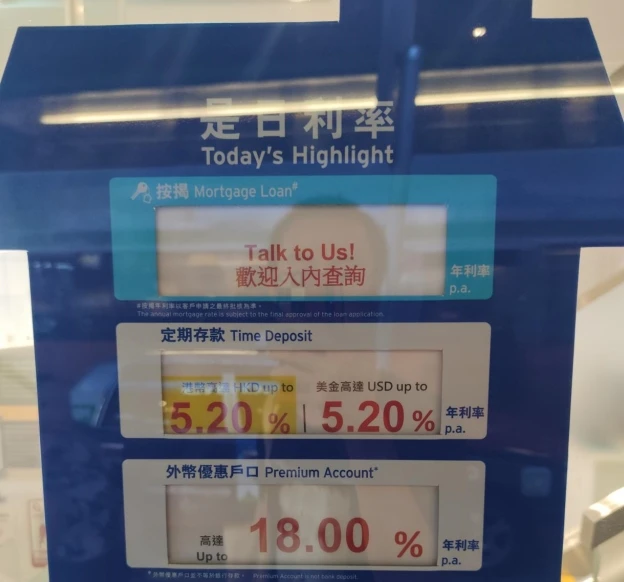
Some say chaos is not an abyss, chaos is a ladder.
So, are you ready to climb up the ladder? Have you seen the way forward clearly?
免责声明:本文章仅代表作者个人观点,不代表本平台的立场和观点。本文章仅供信息分享,不构成对任何人的任何投资建议。用户与作者之间的任何争议,与本平台无关。如网页中刊载的文章或图片涉及侵权,请提供相关的权利证明和身份证明发送邮件到support@aicoin.com,本平台相关工作人员将会进行核查。




